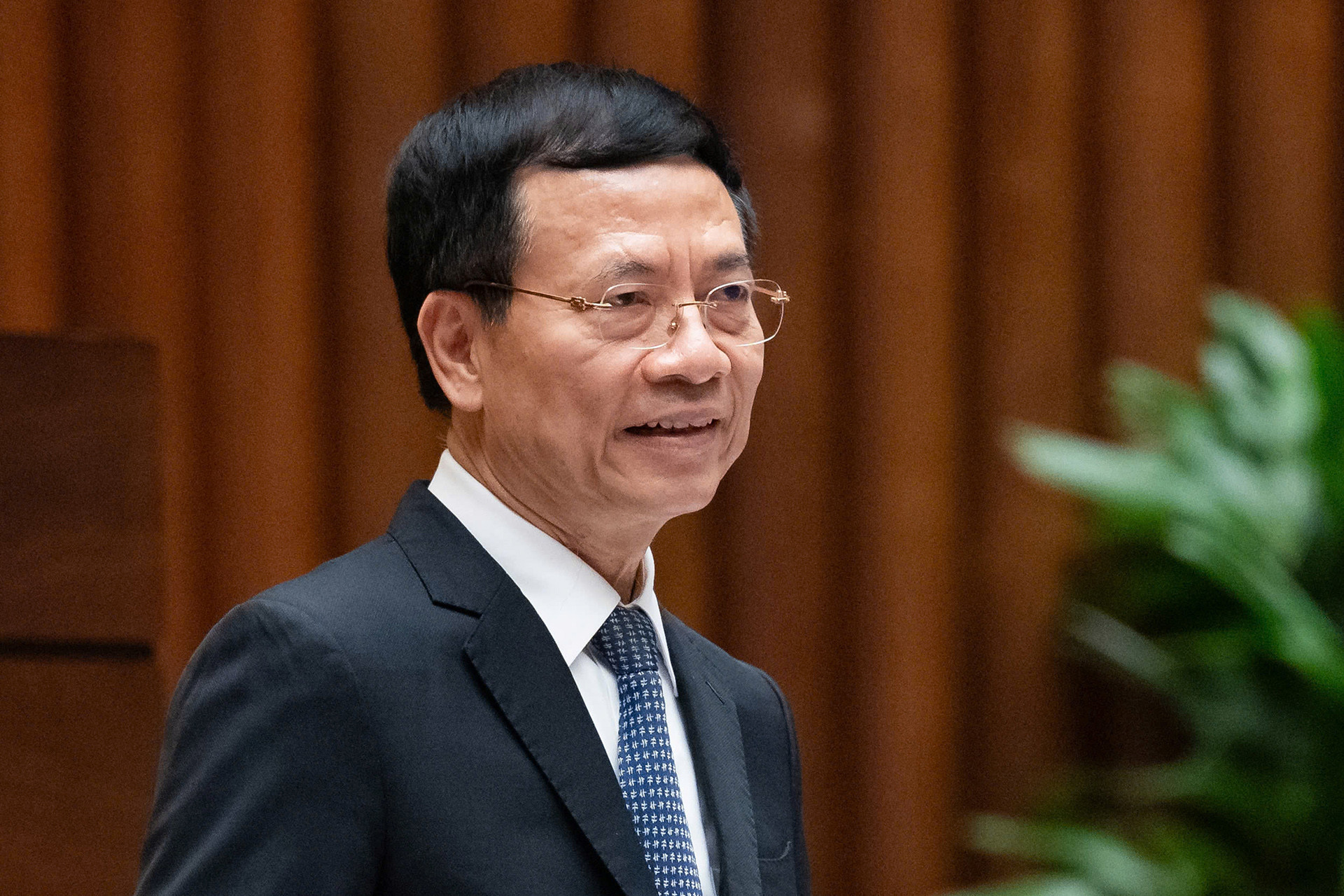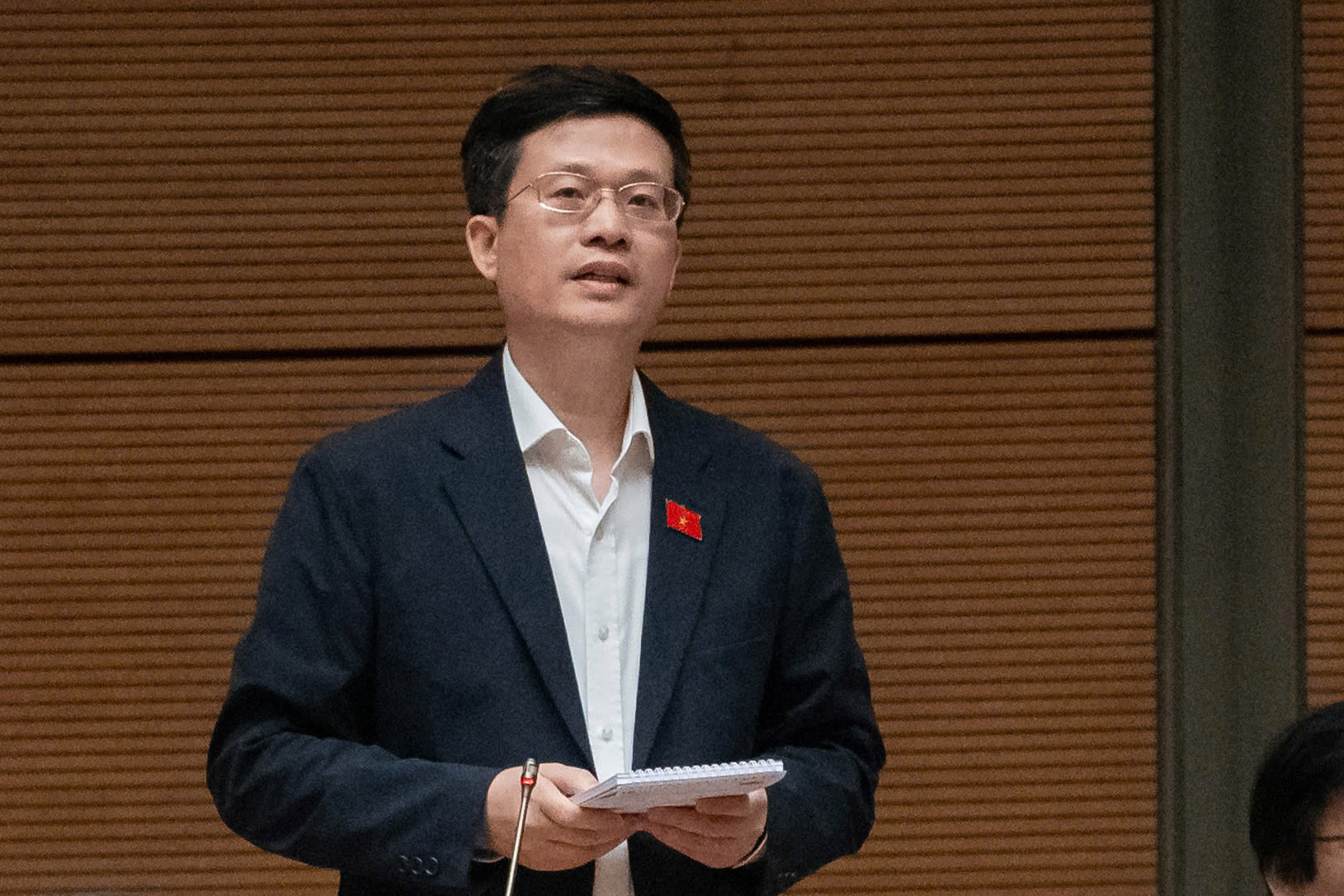Minister of Information and Communications Nguyen Manh Hung stated that if traditional media tries to compete with social media, it will inevitably fall behind. Instead, it should differentiate itself by returning to its core values and using digital technology to regain its audience base and increase advertising revenue.
Deputy Ta Thi Yen (Dien Bien delegation) raised concerns about the intense competition between traditional media and the internet, where social media platforms often spread misinformation. She asked how traditional media could survive and fulfill its role as a cultural and ideological vanguard, contributing to the country's sustainable development, in light of this competition and the challenges of monetization.
The deputy pointed out that media economics can generate significant profits and is a key industry in many countries, supported by large-scale production, state policies, and advanced technology.

Minister Nguyen Manh Hung responded, saying that “revolutionary journalism must be sustained by the revolution.” In past decades, when the market economy was developing, businesses needed advertising to drive sales, and they allocated a substantial budget for it. Back then, most advertising was done through newspapers, which were few in number, and the media organizations sought financial independence from the government.
However, the emergence of social media has shifted 80% of online advertising away from traditional outlets. With more than 800 media agencies in Vietnam today, ad revenue for self-funded media organizations has dropped significantly.
Minister Hung posed the question, “What is the approach when the number of media agencies increases but revenue decreases?”
The Prime Minister’s directive on policy communication mandates that ministries, sectors, and local governments at all levels treat media communication as their responsibility. They must be proactive, allocate annual budgets for policy communication, and use this budget to commission the media. The Minister noted that this is a major change, and, indeed, since last year, governmental agencies at various levels have increased their media budgets.
In the upcoming amendments to the Press Law, media economics will also be addressed. Specifically, major media agencies will be allowed to generate revenue from content production and related media activities, but only for journalistic purposes.

The Minister emphasized that if the press simply follows social media, it will remain behind. Instead, it should focus on its core values—authenticity, accuracy, accountability, and ethical journalism—while also leveraging digital tools to regain its position, expand its readership, and increase advertising revenue.
An essential aspect of the nation’s media strategy is to invest in six leading media organizations to create a “media powerhouse” capable of effectively guiding public opinion. The upcoming revisions to the Press Law will allow the government to create specific economic support mechanisms for these main media agencies. Minister Hung expressed his hope that the National Assembly will support this approach.
In a follow-up discussion on media revenue, Deputy Do Chi Nghia (Phu Yen delegation) observed that Minister Hung is highly concerned with the economics of journalism. “Why must revolutionary media be government-funded?” asked the deputy.
“Policy communication is an avenue for generating revenue for the media, but it shouldn’t be the sole means of supporting its survival,” he argued, adding that revolutionary media should align with public interests by reporting truthfully to build trust and remain competitive with social media. “I’m unsure how much funding would be needed to support all media agencies,” he said.

In response, Minister Hung explained that revolutionary media was fully state-funded in the past. As the market economy developed, however, advertising revenue supplemented government funding.
With the arrival of social media, advertising revenue for traditional outlets has shrunk. Today, around 30% of Vietnamese media revenue comes from government budgets, while 70% is independently earned. Some major media outlets operate entirely independently and rely solely on market revenue. This raises the question of whether media organizations that are fully market-driven can still be classified as revolutionary media, Minister Hung observed.
“Should the government allocate a budget for media communication and commission media agencies?” he asked. He suggested that if revolutionary media were fully state-funded, additional government commissions might not be necessary. But for media outlets that must cover their own operational costs, it is reasonable for the government to support them through commissioned work.
Minister Hung emphasized that media organizations should balance public funding and market engagement, using “two legs” to maintain their role and influence.
Quang Phong - Thu Hang - Tran Thuong